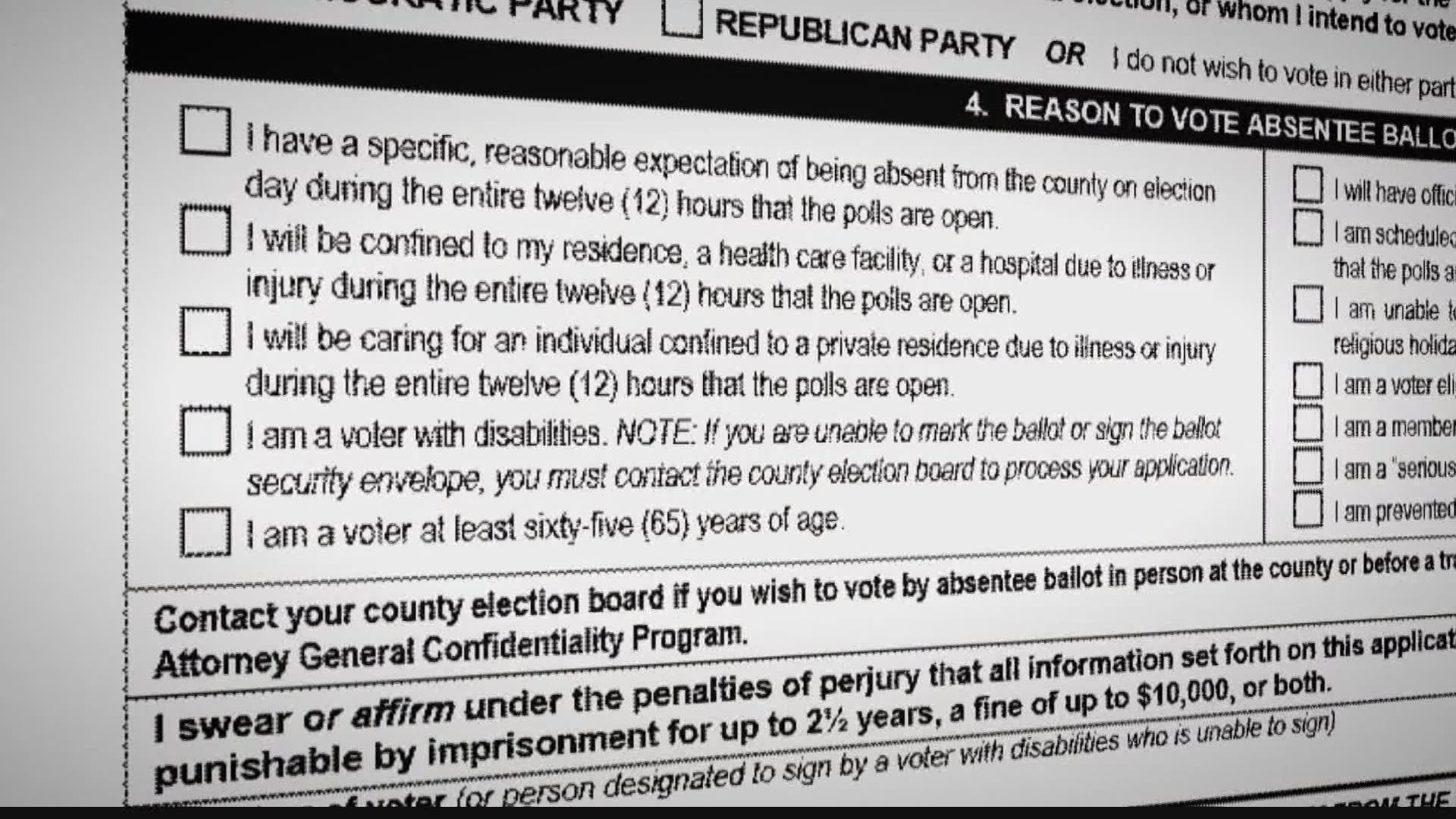INDIANAPOLIS — Indiana remains among a small number states where the fear of catching COVID-19 is not reason to get an absentee ballot to avoid Election Day crowds and long lines.
Even those medical conditions that put them at higher risk don't qualify.
Many are have to choose between risking their health and exercising their right and obligation to vote.
A trip to a voting booth and a potential brush with COVID-19 could be Gary Geer's death sentence.
"I have chronic asthma." Gary said. "It's not good. I would never survive a SARS virus of that magnitude."
He's old enough to qualify for an absentee ballot. A younger asthmatic voter might not qualify. Pat Geer is younger than her husband, and wanting to protect him, she tried to get an absentee ballot.
"I didn't meet any of the qualifications on the list for reasons why you need to vote absentee." she said. "I thought coronavirus would be there."
State leaders insist that fear of the virus is not an excuse for not voting in person.
Voter's with disabilities do qualify for absentee ballots.
Does that include Hoosiers like Gary who have asthma or diabetes, lung disease, cancer, heart problems or other common health issues that put them at a higher risk of contracting and dying from COVID-19?
Indiana election laws do not define disability.
Attorney William Groth said the form doesn't ask you to identify the nature of your disability. It just asks whether you are or consider yourself to be a voter with disabilities.
Groth claims Indiana's election laws are vague and unconstitutional. He's waging a federal court fight to have them changed.
"What's wrong with Indiana election law is that we don't give all voters the option to vote by mail during this pandemic," he said.
According to numerous sources, the chances of having an application challenged are slim to none. Although stretching the truth to meet one of the 12 qualifications might be tempting and easy for some voters, it wasn't for Pat.
"With the threat of perjury if I sign the application and it's not true, I don't feel right doing that," she said.
The lawsuit is in the hands of a federal appeals court in Chicago. A decision is expected before the Oct. 22 deadline for applying for an absentee ballot.

